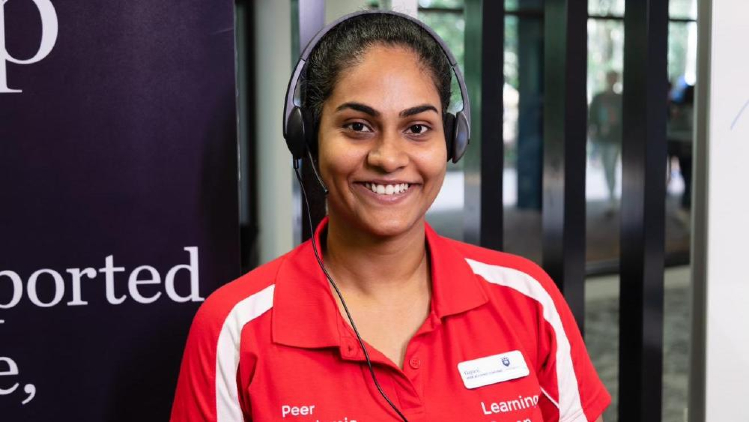“The changing expectations of graduates to participate in media and technology rich employment settings requires new levels of proficiency in digital literacies, trans-literacies and media literacies.” (Future Ready Library Strategy p10)

“The changing expectations of graduates to participate in media and technology rich employment settings requires new levels of proficiency in digital literacies, trans-literacies and media literacies.” (Future Ready Library Strategy p10)
Students can access a curated suite of self-mediated or peer-assisted support resources for their studies and digital literacies, embedded at point-of-need into the online learning environment to encourage personal agency and digital proficiency.
The JISC Student Digital Experience Insights Survey (2019) found that many respondents believed digital skills were important for their studies and future career and more than half responded that more needed to be done to equip them with these skills.
The UOW Student Digital Literacies Framework initiated in 2019 outlined the skills and capabilities displayed by a digitally literate student across six primary categories. Drawing on broad consultation across UOW, its aim was to provide course-level digital literacies support.
Consultation included:

With a greater focus on blended learning since the pandemic, we adopted the JISC digital literacies framework in 2021 which aligns with UOW’s digital maturity, scalability and sustainability needs.
The JISC framework offers extensive student and staff support for digital literacies, as well as a self-assessment tool; these services will be promoted within the newly built Student Digital Skills Hub after additional consultation with stakeholders, and will be embedded into Moodle subject sites in 2022.
The JISC Digital Capabilities Service will extend to support the needs of staff digital literacies in 2022, including the availability of targeted resources for a range of higher education roles.
The direction of this new initiative will be informed by existing collaboration between the Library, Learning Teaching and Curriculum, Professional and Organisational Development Services (PODS) and Information Management and Technology Services.
The Digital Literacies Coordinator will support PODS in exploring and embedding the available JISC Digital Capabilities Service, and coordinating academic staff literacies via the LTC Learning & Teaching Hub under the Blended Learning Enhancement Initiative.
The Learning Co-Op expanded from a physical service to include a digital portal of academic resources, tips for effective studying, and access to Peer Academic Coaches.
The initiative was supported through Student Services Amenities Fees funding (SSAF), and collaboration with student partners, Peer Learning, Learning Development and UOW College.
The Digital Learning Co-Op was an essential service through COVID-19 and while governance has transitioned to PVC Students, the Library continues to be a key contributor.

Students can access online tutorials about information literacy skills anywhere, anytime. Using H5P technology, the DLOs range from interactive database tutorials to videos to content that can be embedded directly into subject sites.
In 2021, the Learning & Engagement Team reached out to 111 first-year subject coordinators to embed DLOs in over 115 core subject Moodle sites. This built on a portfolio of existing embedded DLOs across all curriculum levels, including Business subjects, Honours in EIS and ASSH, and core second year research-based Nursing subjects and UOW College.
The DLOs also included evaluation surveys to gather analytics for continuous improvement.